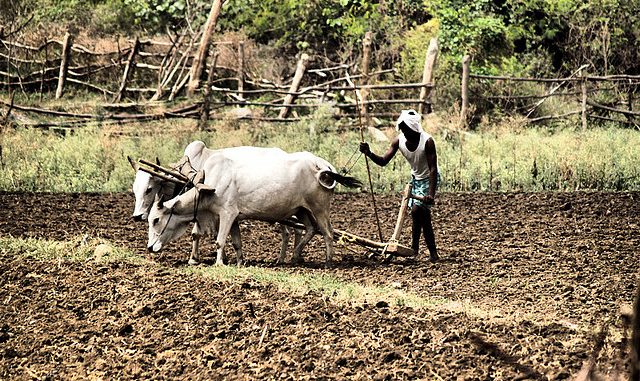
A recent assessment of the flagship agriculture scheme says that PMFBY needs to favour farmers, not insurance companies that make super normal profits under the scheme
In what is a validation of farmers’ outcry against unfair policies, a recent assessment of Pradhan Mantri Fasal Bima Yojana (PFMBY) shows that the flagship agriculture scheme favours insurance companies and needs to be corrected to serve its true beneficiaries – farmers.
Apart from immediately fixing the scheme in favour of farmers, the evaluation by the Union Ministry of Agriculture and farmers’ welfare (MoA&FW) also recommended the government to cap the “super-normal” profit of insurance companies.
The first such study also recommended the use of crop-cutting technology that allows measuring yield, increasing operational window for insurance companies, and lowering the number of insurance companies under the scheme.
Although the evaluation was submitted in August 2018 to the ministry, it was not released in the public domain. According to the report, the scheme has an edge over the previous National Agriculture Insurance Scheme (NAIS) but still needs to provide insurance companies performance linked incentive or penalise them for below-par performance. The report recommended participation of insurance companies to be restricted to up to 10. Currently, 18 insurance companies are participating in this scheme.
Poor performance
Saying that the enrolment of farmers has reduced significantly in the past two years, the report added that even the area covered is reducing. Three-fourth of total claims and three-fourth of total premium is concentrated only in 25 per cent of the districts, said the study.
The total area insured under the scheme decreased by 13.27 per cent from 2017-18 to 2016-17. The area insured per farmer in the crop in 2017-18 was 0.02 hectares lesser than that in 2016-17.
Assam, Jammu & Kashmir, Manipur, Meghalaya and Sikkim saw the highest gains in area coverage, whereas the states of Goa, Karnataka, Maharashtra and Tripura saw large falls in area covered under insurance.
The total area insured in Rabi 2017-18 decreased by 20 per cent from 2016-17. Andhra Pradesh, Jammu & Kashmir, Manipur and Uttarakhand saw the highest increment in area coverage, whereas the states of Goa, Karnataka, Maharashtra and Tripura saw a large fall in area covered under PMFBY in Rabi season.
The total farmers insured under the scheme reduced from 5 crore in 2017-18 to 3.6 crore in Kharif 2017. Farmers’ enrolment in Rabi 2017-18 reduced by 16.12 per cent from 2016-17.
While Assam, Jammu & Kashmir, Odisha, Karnataka and Meghalaya saw the highest gain in enrolment, Bihar, Goa, Kerala, Rajasthan and Uttar Pradesh saw a decline. Assam, Karnataka, Kerala and Rajasthan saw the biggest dips in Rabi enrolment as compared to 2016-17.
Marginal increase in sum insured area
The total sum insured under the scheme in 2017-18 was Rs. 1.91 lakh crore, a marginal increase of 0.12 per cent from 2016-17. While the sum insured per farmer increased by Rs 4,597 per farmer, the sum insured per hectare increased by Rs. 3,580 in 2017-18 as compared to 2016-17.
The sum insured in Kharif 2017 was Rs. 1.22 lakh crore, which was 1 per cent lower than Kharif 2016. In Rabi 2017-18, sum insured was 68 thousand crores which was 3.16 per cent higher than Rabi 2016-17.
Premium increased but claims lowered
The report said that the total premium collected by insuring agencies increased by 11.6 per cent from 2016-17 to 2017-18. The premiums paid by the central and state governments were Rs. 9,679 crore each. In 2017-18, the total premium paid by farmers was Rs. 3,916 crore, 1 per cent lesser than the previous year. The average premium paid by each farmer was Rs. 4,634, which is 20 per cent more than 2016-17.
The study was authored by project coordinator, Ranjan Kumar Ghosh of Centre for Management in Agriculture of Indian Institute of Management Ahmedabad.
Source: Down To Earth Magazine

Leave a Reply